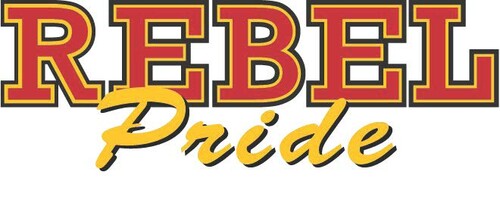W.R. Myers High School is committed to ensuring fair, accurate, and equitable assessment practices that support student learning and achievement. Assessments should provide meaningful feedback, inform instructional decisions, and reflect students' progress toward the learning outcomes outlined in the Alberta Programs of Study.
This policy establishes consistent guidelines for assessment, evaluation, and reporting in alignment with Horizon School Division’s Student Assessment, Evaluation, and Reporting Policy (HK).
In-Class Assessments
- Assessment Scheduling – Teachers schedule assessments, including unit exams and final exams, to evaluate student understanding. Specific dates are chosen to allow students ample preparation time and to ensure fair and equitable assessment.
- Attendance Expectations – Students are required to attend all scheduled assessments. In exceptional circumstances, teachers may:
- Administer the same exam at an alternate time.
- Provide an alternative assessment.
- Note: Students and parents are responsible for communicating any anticipated absences in advance of the exam date.
Teacher Evaluation Practices
Teachers are responsible for ensuring a broad-based assessment approach, including a variety of evidence. Teachers determine in their unique context which assessments best allow students to demonstrate evidence of learning.
- The following practices that distort accuracy shall not be used:
- Awarding extra credit or bonus points.
- Assigning a single grade to all members of a group for a demonstration of learning.
- Deducting marks for student work submitted after the due date.
- Applying a grade of zero as a punishment.
- Final assessments must:
- Reflect key learning outcomes from the Alberta Programs of Study.
- Support the determination of grade-level achievement.
- Be completed by all students unless special circumstances warrant an exemption.
- When evidence of learning is insufficient, teachers will establish proactive and responsive steps to support student success.
Assignment Completion and Late Work
- Students are expected to complete all assignments fully and effectively within the provided due dates to demonstrate their learning in a timely manner.
- Teachers have the autonomy to determine how late or missing work is handled, including:
- Accepting late submissions without penalty.
- Requiring students to complete missing work at other times during the instructional day
- Requiring completion of an alternative assessment if work is submitted late.
- Final Deadline for Late or Missing Work – Teachers will set cut-off dates around Exam Week for when outstanding or missing work will no longer be accepted. This ensures that:
- Students complete and submit their work before final assessments.
- Teachers have sufficient time to assess and report student progress accurately.
Assignment Non-Submission, Plagiarism, and Use of Zeros
- A grade of zero may be assigned as a placeholder in the following situations:
- Unsubmitted Work – If a student fails to submit an assignment, a zero may be used as a placeholder indicating insufficient evidence of learning.
- Plagiarized Work – If an assignment is determined to be plagiarized (including unauthorized use of AI tools), a zero may be assigned as a placeholder until the student demonstrates authentic learning.
- When a zero is assigned, students must be given an opportunity to redemonstrate learning and remove the zero. This may include:
- Resubmitting the original assignment.
- Completing an alternative assessment.
- Engaging in additional learning activities before reassessment.
- If a student does not take advantage of the opportunity to redemonstrate learning within the teacher's established timeline, or the re-submitted work violates the school’s academic integrity and plagiarism policy, the zero may remain as the final grade as insufficient evidence of learning was demonstrated.
Accountability and Fairness
-
Transparency in Assessment - Students must be provided with clear and transparent information regarding their assessments, including:
- The purpose and method of assessment data collection.
- How grades are determined, including weighting and calculation methods.
- The criteria used for evaluation, such as rubrics, exemplars, and course outlines.
-
Student and Parent Expectations - Students and parents have the right to expect:
-
-
- Assessment practices that are fair, equitable, and aligned with the learning outcomes in Alberta Education’s Programs of Study.
- Timely and accurate communication regarding student progress.
- Opportunities for students to improve their learning through feedback and reassessment where appropriate.
-
- Report cards provide a formal written summary of student achievement and should align with ongoing assessment data.
-
- Teachers will communicate assessment expectations within the first five instructional days of a course.
- Teachers will ensure that evaluations are completed in a timely manner, and that grades recorded in SIS (PowerSchool) accurately reflect a student's demonstration of learning.
- Students and parents will receive ongoing feedback throughout the course to ensure there are no surprises on the report card.
-
